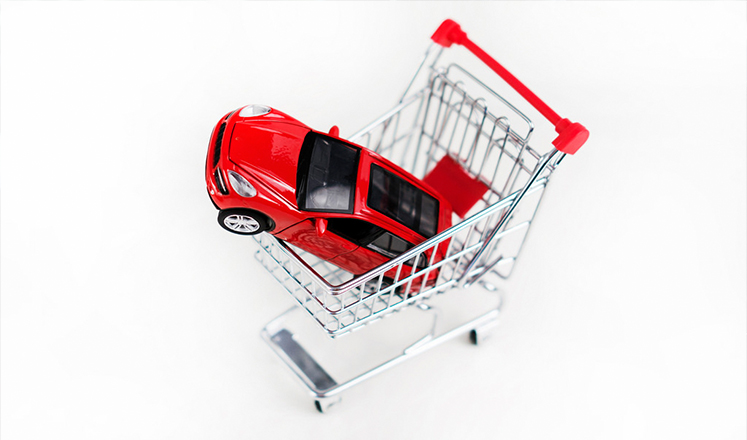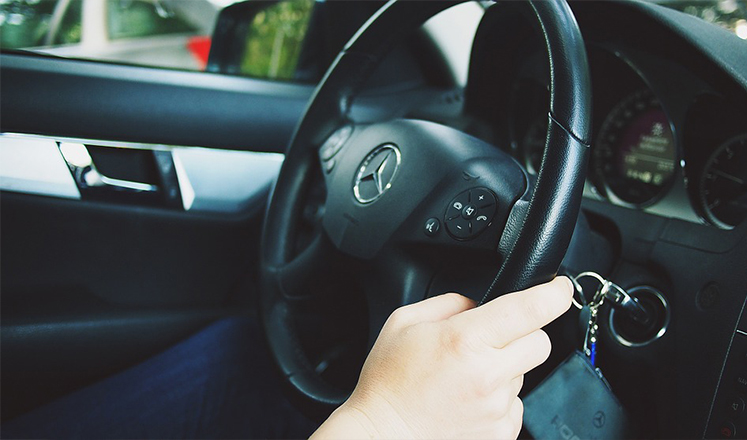Buying a new car can be a daunting experience, especially if you aren’t that familiar with the technicalities or it is your first car. What do you look for? What questions are you meant to ask? How do you know if you are paying the right price?
Well fear not, because at Creditplus we have come up with some top tips to prepare you for the car buying experience.
The right time to buy?

This may sound easier said than done, as you aren’t always able to plan when you will want to buy a new car. For example, if your car gets written off and you need a car for work, you are forced to buy one instead of planning the best time.
However, if there is no immediate rush, it could pay to be more tactful when buying your car. Naturally, dealers will have targets that they need to meet in order to receive their sought-after bonuses. Usually these are based upon quarterly sales, meaning March, June, September, and December are the months when salesmen are the most active when trying to sell cars. This can work in your favour, dealers will be hungrier to close a deal, and therefore perhaps more willing to offer a more attractive financial package. Negotiations will be more readily accepted during these months as a rule, so don’t be afraid to negotiate (even if it is not during these time periods).
Obviously, this advice will not apply to private sellers who have no targets to achieve, they will be looking to achieve a certain price. Keep an eye on the price of the car, if it begins to decrease, it could pay to wait for the price to continue to fall before making an offer. However, if you notice a price increase over time, it could be best to buy the car sooner than later.
Choosing the right car
Of course, as with anything, it is important to maintain an open mind when choosing which car to buy. There is no point having your head set on one model, when more financially viable or practical options are available.
Before you take a trip down to the dealers, have a think, what do you want/need from your next car? Are you looking for a car with enough room for children and their car seats? Do you need a car capable of constant motorway cruising, or just a small city car? Are you after full spec, or just the basics?
By building an idea of what you want or need, you will less likely be manipulated into buying a car that you don’t need, or paying over the odds.
Shop around

Perhaps quite obvious, it makes sense to shop around in order to hunt out the best deal, especially when it comes to such a significant purchase, where savings can be made in their hundreds. You can also use various price ranges to your advantage by pitting dealers against each other. Ask if the original dealer can match the price of their rival, and again, don’t be afraid to haggle!
Use online checks
Unfortunately, when it comes to buying cars, not everyone is as honest as they should be and occasionally you can end up purchasing a stolen vehicle without even knowing it. By using online car checks such as mycarcheck.com, you can find out a vehicle’s ‘hidden history’. Simply enter the registration number into the search bar, and you are able to discover whether the vehicle is listed as stolen, if it has previously been written off or if there is any outstanding finance left on it.
You can also use the internet as a tool to help you gage the real value of a car that you are interested in buying. A private seller will be looking to get as much as they can for their car, but the price may reflect this instead of the cars actual value. Search around online and compare prices, and see if you are in fact getting the good deal that is being promoted.
Location
When buying a car from a private seller, it is important to keep an eye out for signs of suspicious behaviour or activity. If the seller insists on showing you the car in a car park or road side instead of their homes, then this could indicate that the car is stolen. It could also suggest that the person selling you their car does not want to be located if something is wrong or goes wrong with their car.
If you feel uncomfortable viewing a car on your own at a stranger’s house, then take someone along with you. This does not just offer personal safety, but also the opportunity for another opinion and set of eyes when viewing the car. Your friend or family member may add an unbiased viewpoint whilst viewing the car at a private seller’s, or dealership, and enable you to fully inspect the vehicle you wish to buy.
Make a checklist
Before you go to view a potential car, make a quick checklist of the key points you need to check. When you see the car, you need to know what you are looking for and what you should be checking for both legal and safety requirements. Do your research and compile a list of what to inspect when you come to see the car. For example, check the windscreen for chips, check the tyres for wear and tear and check the car for signs of new paint jobs. You should also make sure you know which documentation you will need to check, and the legal requirements for where MOTs and insurance are concerned.
Some essential things to check you have before buying the car are as follows:
- Logbook/V5C – issued by the DVLA as proof that you are the owner of the new vehicle
- Manuals – check that you have the cars manual as it will come in handy if you face future technical failures etc
- Servicing booklet – this will allow you to check when the car was last serviced and what it was that needed replacing/repairing which can help you prepare for when you need to service the car
- Spares – check to see if the car still has its spare wheel along with the tools to change it, and be sure to take a spare set of keys as they can be pricey to replace
Be sure to test drive

Another absolute ‘must’ is to take your potential new car for a test drive, to get a good feel for what you are investing in. There are some key elements to check whilst on your test drive, and they are as follows:
- Comfortable driving position – are you able to appropriately adjust the seat so that you can sit in a comfortable position, and able to reach the steering wheel appropriately? Also, check how you can reach the pedals and positioning of all mirrors
- Space for children’s car seats – if you have children, try fitting a child seat so that you know you will be able to fit the children in once the car has been purchased
- Include different routes – if you can, try driving over a variety of different roads such as motorways if you will be using them frequently
- Test the brakes – seek out a quiet, empty road and do an emergency stop to ensure that the brakes are working correctly. Also, try applying the handbrake on a hill and be sure to listen out for any unusual clunking and rattling
- The steering – on an empty road test the ease of steering, if it feels loose then you know that there is a problem. Be sure to see if the car veers when on a straight, as this would mean the steering is unbalanced
- Doors, boots, and bonnets – when you test drive your car, make sure you check all doors, not just the driver’s side. Make sure they all open smoothly without any unhealthy sounds, and check for signs of rust. Do the same with the boot and bonnet, obviously checking that everything is in tact
- Listen to the engine – whilst driving make sure you take a listen to the engine for any tell-tale signs of possible malfunction such as rattling and buzzing
- Suspension – the suspension should adequately absorb any lumps and bumps in the road (within reason), however if the car still bounces around after encountering a bump in the road, the suspension could be faulty
- The interior – make sure you check the interior of the car for wear and tear that may not be listed. Check the seat upholstery for rips or stains, scuffs on the dashboards and check that all buttons and dials work correctly
- The paintwork – when viewing the vehicle make sure that you check the cars paint work all around for scuffs, dents or bubbles under the paintwork as sellers may often not mention small flaws
- Can you park it? – if possible, try parking the car in a car park, or even your driveway to make sure that you can park a car of its size, and that it fits in with your living space
You should also check that the mileage of the car matches the figure that has been documented and advertised. Another tip is to check if the wear and tear inside matches the mileage of the car, if a cars gearstick is worn down and the foot-well appears scruffy but the mileage is unusually low, it could have been tampered with! If you do decide to purchase the second-hand car that you are viewing, from a dealership or private seller, you will need to ensure that you have insured yourself on the car before purchasing it. This is because you will be responsible for the vehicle directly after you have bought it.
Understand the contract

Whether you are buying a second-hand car, or you choose to go down the finance route, it is important that you fully understand the contract that you are signing. Read through it all, including the small print and make sure you are happy with its terms. Check that all personal details are correct and that all the pricing is as agreed. When entering into a finance agreement, make sure that you can pay the agreed instalments before signing any documentation.
Also, be aware of your consumer rights when purchasing a second-hand car. If the seller has clearly stated a certain fault before you buy the car, you will not be able to demand for a refund, for obvious reasons. However, if you have paid a fair price for the vehicle which has no obvious flaws, and no faults have been made clear by the seller then you may be in a position to receive a full refund.
Feeling prepared?
With the help of the Creditplus guide to buying cars, you should now be fully prepared to buy your next car.
But Creditplus can not only help you prepare for your new car search, we can also help find, fund and deliver the car of your dreams to your drive using our extensive car search. Get in touch with our Customer Advisors today on 0800 1777 290 and they will be able to assist you on your car finance journey. Or complete our simple, 2-minute online application form and our team will be in touch to help you find the perfect second hand car for you.





 Facebook
Facebook Twitter
Twitter Instagram
Instagram LinkedIn
LinkedIn Youtube
Youtube